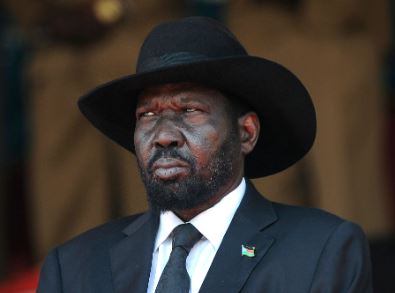BY SIMON TOR DE DENG
South Sudan has been embroiled in political turmoil and conflict since gaining independence in 2011. The disputes and blame game towards President Salva Kiir Mayardit have been a constant feature of the country’s political landscape. Despite his efforts to bring change and peace to South Sudan, President Kiir has faced harsh criticism from various sectors of society. One of the major points of contention has been the scheduling of elections in December 2024. President Kiir had set this date for the election, but it was subsequently postponed.
The blame for this [elections] postponement has been placed on various parties, with some South Sudanese claiming that the country was not peaceful enough to hold an election at that time. However, it is important to note that the decision to postpone the election was not solely President Kiir’s, as the SPLM IO leadership also played a role in refusing to participate in the election due to grievances related to the lackluster implementation of the 2018 revitalized peace agreement. Another source of disagreement has been the endorsement by the South Sudanese parliament to postpone the election to 2026.
This decision has further fueled blame towards President Kiir, as many feel that the parliament is not doing enough to support the president in the face of public criticism. This lack of unity and teamwork within the government has hindered the country’s progress towards peace and stability.
All South Sudanese must realize that the responsibility for the country’s future lies in their hands, not just President Kiir’s. Blaming one individual for all of the country’s problems will not solve anything. Instead, there needs to be a collective effort to work together toward a common goal of building a better future for South Sudan.
There is also a concern that even if President Kiir were to step down from office, the challenges facing South Sudan would not disappear overnight. All politicians and stakeholders need to recognize that real change can only come about through collaboration and cooperation rather than divisive blame games and negative campaigns in the media.
Looking towards the future, the planned election in 2026 may also face challenges, with some individuals fearing that they may lose their positions of power if the election were to go ahead. This highlights the deep-seated issues of power struggles and personal interests that continue to plague South Sudan’s political landscape. While President Salva Kiir has experienced some failures in South Sudan, the absence of public support prevents him from propelling the country forward with necessary infrastructure projects and groundbreaking ideas that could transform the nation into a globally recognized economy.
In conclusion, the disputes and blaming of President Kiir are indicative of the deep-rooted challenges facing South Sudan. All stakeholders need to come together and work towards a common goal of peace and stability rather than engaging in divisive rhetoric and finger-pointing. Only through collective effort and collaboration can move South Sudan forward and overcome the obstacles that have hindered its progress for far too long. South Sudanese should stop blaming the president and move forward. I support the 2026 election, but those in power-sharing roles may only participate if guaranteed a similar government position they got as a result of the 2018 peace agreement.
Ultimately, the country’s development will come from working together, setting aside blame, and focusing on what can be done now to ensure a brighter future. Everyone has a role to play, and if each individual is empowered to contribute, South Sudan can move forward in a positive direction.
The author can be contacted via dengdengt@yahoo.com.
The views expressed in ‘opinion’ articles published by Radio Tamazuj are solely those of the writer. The veracity of any claims made is the responsibility of the author, not Radio Tamazuj.




